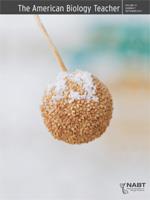Many animals direct assistance selectively toward relatives and/or aggression toward non-relatives; the ability to differentiate between kin and non-kin should evolve when doing so incurs fitness benefits. We detail a field-based experiment that tests whether workers of a large-bodied, abundant, and hardy seed-harvester ant are capable of kin recognition. We use this exercise in an undergraduate animal-behavior class to introduce concepts associated with eusocial insects and the study of kin recognition, as well as to reinforce principles of hypothesis testing, experimental design, and scientific writing. Students collect data, analyze and interpret results, and write a formal report; this experiment is one of several we use as models to prepare students for designing and performing their own follow-up studies.
How to translate text using browser tools
1 September 2011
An Experimental Test of Kin Recognition in Harvester Ants
Stephanie A. Strickler,
P. L. Schwagmeyer
ACCESS THE FULL ARTICLE
It is not available for individual sale.
This article is only available to subscribers.
It is not available for individual sale.
It is not available for individual sale.

The American Biology Teacher
Vol. 73 • No. 7
September 2011
Vol. 73 • No. 7
September 2011
animal behavior
evolution
experimental design
harvester ants
hypothesis testing
kin recognition
scientific writing




